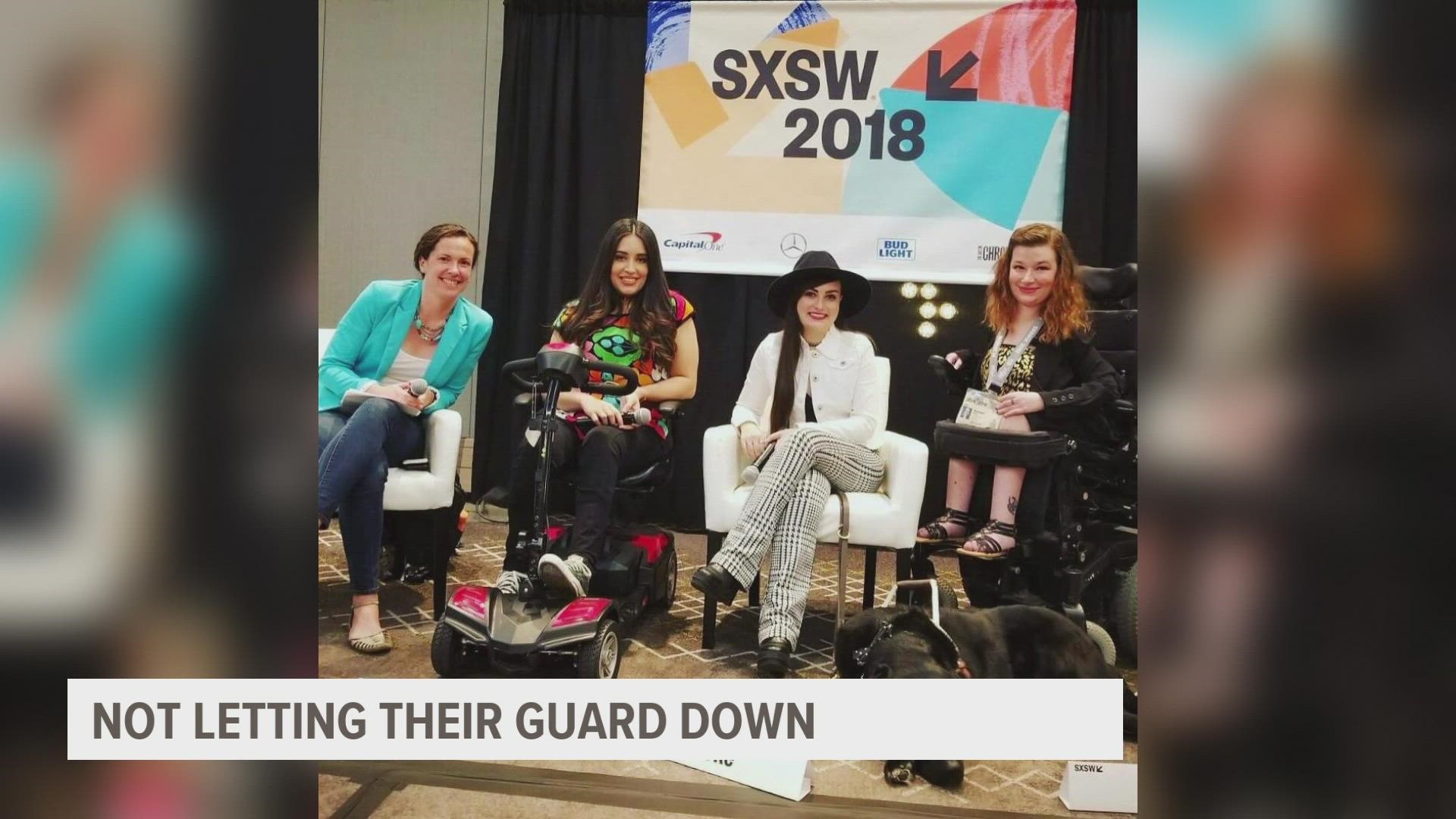WEST DES MOINES, Iowa — As the CDC relaxes COVID-19 mitigation recommendations many Iowans are feeling safe to return to pre-pandemic living. But for disability advocate Hannah Soyer, who has spinal muscular atrophy and is considered high risk for COVID-related complications, the pandemic isn't over
"The more certain people ignore it, the worse it becomes for those of us who can't ignore it. And that has been incredibly, emotionally taxing," Soyer said.
While the pandemic brought risks for Iowans with disabilities, it also carried long-needed at-home accommodations. Brooke Lovelace, the director of the Iowa Developmental Disabilities Council said the need for people with disabilities to work from home existed long before the pandemic
"Once COVID hit in March 2020, all of a sudden, the whole world was working from home... Here's folks with disabilities that have been asking for that forever, you know, and now it actually is a reality," Lovelace said. "So what I do hope if anything... that people with disabilities will be offered those same flexibilities and be able to work from home."
Lovelace attributes the disappearing mitigation strategies along with isolation as factors affecting the mental health of those with disabilities.
"Not being able to be involved in the community, and that can really have an impact on everybody," Lovelace said. "But I think it was especially tough for folks with disabilities, where they were told they they weren't able to go out."
For Soyer, the pandemic painted a grim picture of how society measures the life of a person with disabilities.
"The pandemic was the first time in my life where I came face to face with just complete disregard for disabled life," Soyer said.
She's now working to preserve history, collecting oral testimonies and interviews of disabled and chronically ill individuals on their experiences during the pandemic for the COVID-19 Disability Archive.
WATCH | 'It's so pretty, but it's so sad': Iowa COVID memorial expands to honor additional victims

